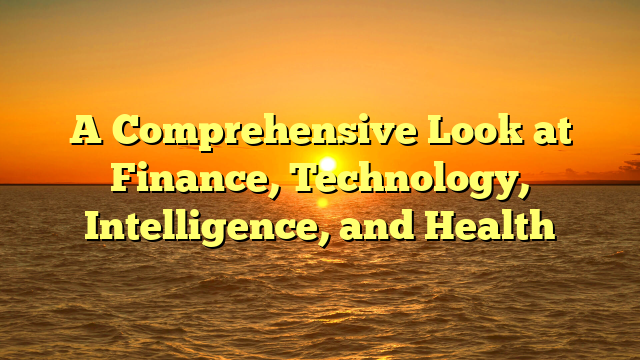Finance, technology, intelligence, and health—four essential pillars of modern society—are increasingly converging. Together, they are driving change in how we manage wealth, improve health, harness technological power, and enhance cognitive abilities. In this article, we will examine the interconnected nature of these sectors and their collective impact on our lives.
gacor96 and Technology: Technology has played a pivotal role in reshaping the financial landscape. Financial institutions have adopted cutting-edge technologies to improve operational efficiency, enhance customer experience, and offer personalized financial products. The use of artificial intelligence (AI) in credit scoring, risk management, and investment strategies has paved the way for smarter financial decision-making.
Intelligence and Technology: The field of artificial intelligence is rapidly evolving, with breakthroughs in machine learning, deep learning, and neural networks driving technological progress. AI systems are capable of understanding complex data, recognizing patterns, and even simulating human-like cognitive functions. This opens up new possibilities for improving both individual and collective intelligence, from healthcare diagnostics to financial predictions.
Health and Technology: Health technology is advancing rapidly, with innovations such as smart wearables, AI-driven diagnostics, and robotic surgery. These breakthroughs are making healthcare more efficient and personalized. Wearable devices, for example, allow patients to track their vital signs in real-time, while AI algorithms are helping doctors detect diseases earlier and more accurately.
Intelligence, Health, and Finance: As financial institutions and healthcare providers collaborate with tech companies, we see a growing trend of integrated solutions that address both financial and health needs. AI and data analytics are helping to optimize healthcare investments, providing individuals with personalized treatment options that fit within their financial means. This integration is driving efficiency in healthcare delivery while promoting better financial planning for health management.
Conclusion: As the worlds of finance, technology, intelligence, and health continue to evolve, the potential for positive change is immense. By harnessing the power of AI, data analytics, and digital technologies, we can create a future that is healthier, smarter, and more financially secure. However, we must approach this future with careful consideration of privacy, equity, and ethical responsibility to ensure that progress benefits all.
Ultimately, the synergy between finance, technology, intelligence, and health offers transformative possibilities for the future. With careful planning and ethical considerations, we can harness these advancements to enhance individual well-being, improve healthcare systems, and create smarter, more resilient economies.
